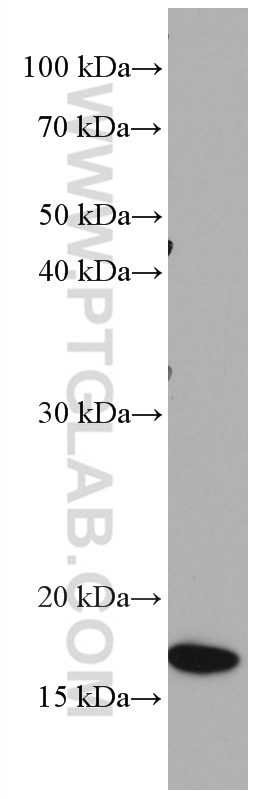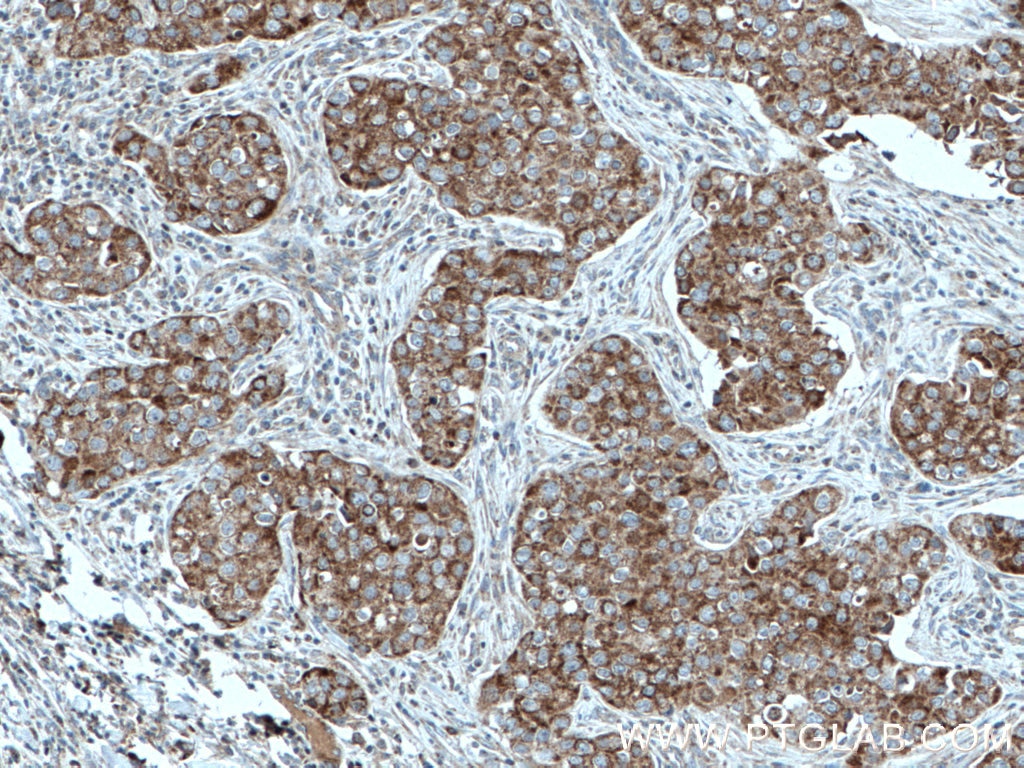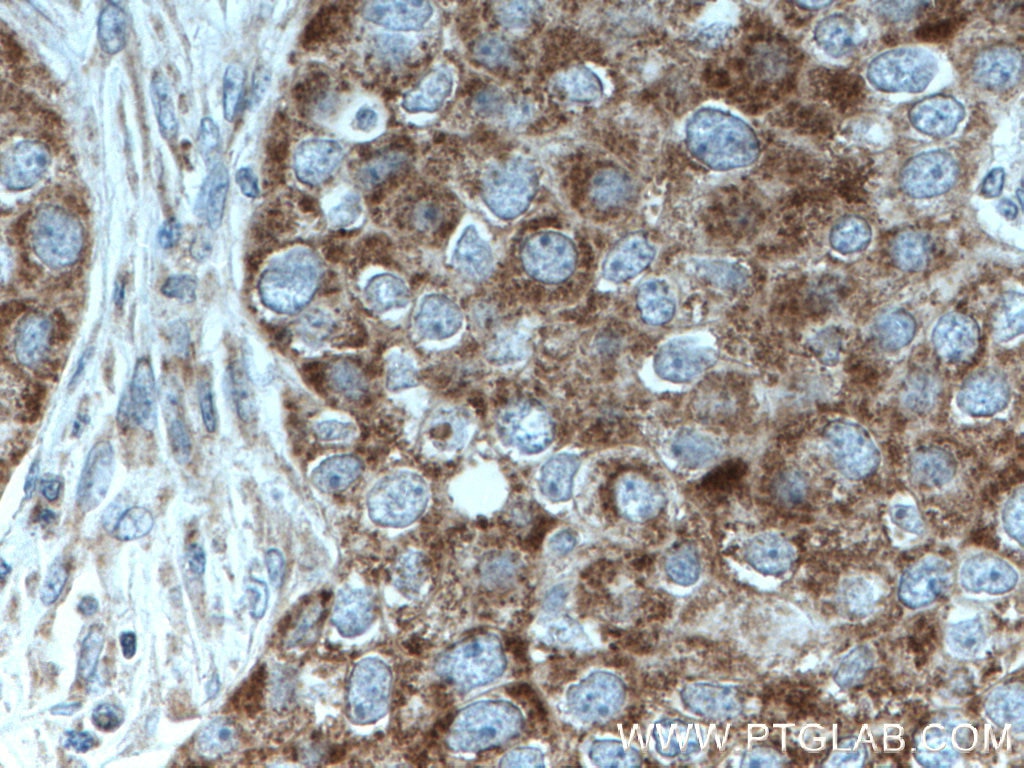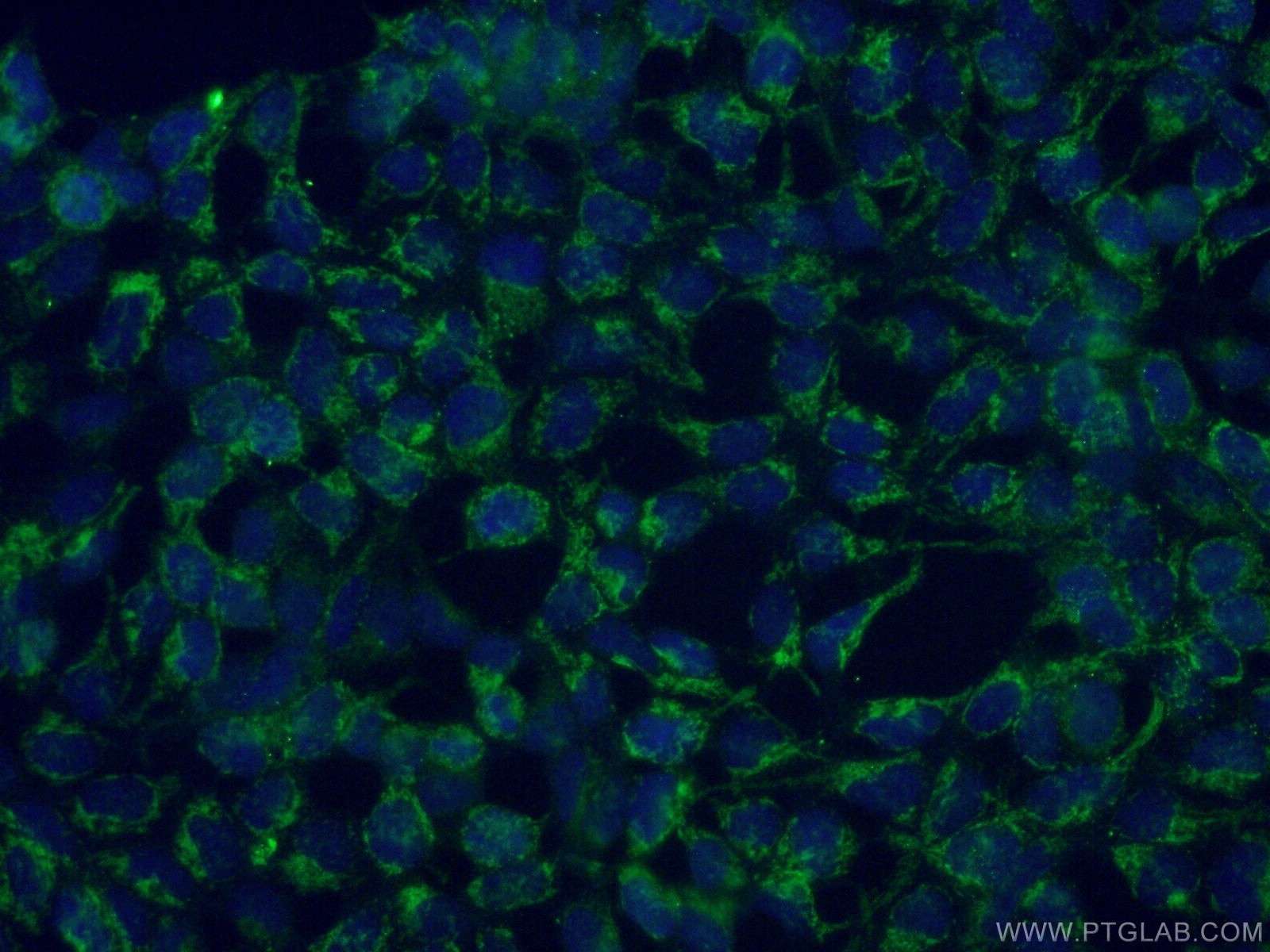Tested Applications
| Positive WB detected in | HEK-293 cells |
| Positive IHC detected in | human breast cancer tissue Note: suggested antigen retrieval with TE buffer pH 9.0; (*) Alternatively, antigen retrieval may be performed with citrate buffer pH 6.0 |
| Positive IF/ICC detected in | HEK-293 cells |
Recommended dilution
| Application | Dilution |
|---|---|
| Western Blot (WB) | WB : 1:5000-1:50000 |
| Immunohistochemistry (IHC) | IHC : 1:250-1:1000 |
| Immunofluorescence (IF)/ICC | IF/ICC : 1:50-1:500 |
| It is recommended that this reagent should be titrated in each testing system to obtain optimal results. | |
| Sample-dependent, Check data in validation data gallery. | |
Product Information
66595-1-Ig targets MRPL23 in WB, IHC, IF/ICC, ELISA applications and shows reactivity with Human samples.
| Tested Reactivity | Human |
| Host / Isotype | Mouse / IgG2a |
| Class | Monoclonal |
| Type | Antibody |
| Immunogen | MRPL23 fusion protein Ag2220 Predict reactive species |
| Full Name | mitochondrial ribosomal protein L23 |
| Calculated Molecular Weight | 153 aa, 18 kDa |
| Observed Molecular Weight | 18 kDa |
| GenBank Accession Number | BC027710 |
| Gene Symbol | MRPL23 |
| Gene ID (NCBI) | 6150 |
| RRID | AB_2881955 |
| Conjugate | Unconjugated |
| Form | Liquid |
| Purification Method | Protein A purification |
| Storage Buffer | PBS with 0.02% sodium azide and 50% glycerol , pH 7.3 |
| Storage Conditions | Store at -20°C. Stable for one year after shipment. Aliquoting is unnecessary for -20oC storage. 20ul sizes contain 0.1% BSA. |
Protocols
| Product Specific Protocols | |
|---|---|
| WB protocol for MRPL23 antibody 66595-1-Ig | Download protocol |
| IHC protocol for MRPL23 antibody 66595-1-Ig | Download protocol |
| IF protocol for MRPL23 antibody 66595-1-Ig | Download protocol |
| Standard Protocols | |
|---|---|
| Click here to view our Standard Protocols |









